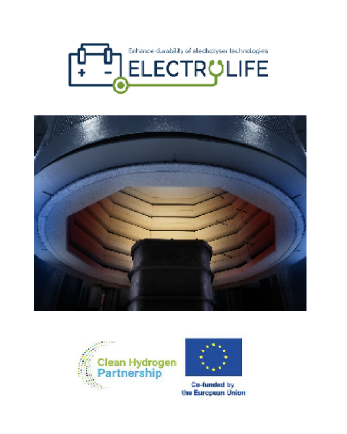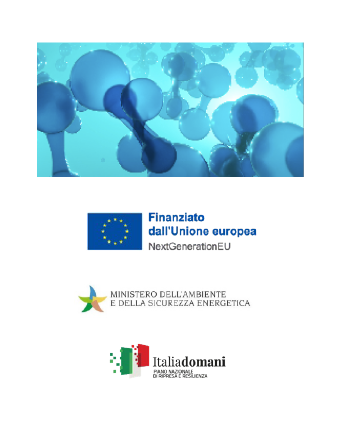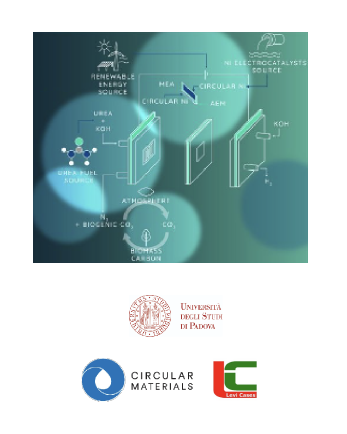- We are Hyter
- Why Hyter
- certifications
- Innovation
- Projects
- Home
- Who are we
We are Hyter
manufacturers of electrolysers
for the energy of tomorrow
Hyter, based in Desenzano del Garda, is the evolution of a path that began in 2011 with the foundation of the start-up SPI Consulting and culminated in 2021 with the entry into the Pietro Fiorentini Group. Our name combines the English word hydrogen and the Latin iter, reflecting our mission to innovate in the field of hydrogen and to develop technologies that foster its widespread adoption.
Hyter stands out as one of the leading electrolyser manufacturers in Italy thanks to its innovative AEMWE (Anion Exchange Membrane Water Electrolysis) technology, which combines the advantages of alkaline and PEM technologies. Since 2015, our R&D team has been constantly working to improve the performance of electrolytic cells, creating solutions suitable for both pilot applications and industrial projects.
Since its acquisition by Pietro Fiorentini, Hyter has been able to embrace the Group's Purpose:
Group Purpose
We value resources. Together, today and for future generations.
Together with this approach of continuously exploring new forms of resource utilisation, and thanks to the Group's own expertise, Hyter has been able to grow and is now able to offer integrated solutions from large-scale green hydrogen production to its utilisation. Our portfolio includes electrolysers ranging from a few kW to multi-MW plants, with AEMWE technology for smaller applications and PEM technology for large industrial plants.
AEMWE electrolysers
Hyter's proprietary AEMWE technology, sets a new standard in hydrogen production, combining high efficiency, environmental sustainability and low costs. Our AEMWE electrolysers reach up to 1 MW.
Discover morePEM electrolysers
PEM technology uses a proton exchange membrane to produce pure hydrogen quickly and efficiently. Our PEM electrolysers offer high performance on large-scale production, over 1 MW.
Discover moreWhy Hyter
Our strengths
Technology expertise
and continuous improvement
We rely every day on our technological expertise to enhance and push forward the development of our solutions. As part of the Pietro Fiorentini Group, Lean and Agile methodologies support our natural approach to continuous improvement.
In-house chemical lab
One of our key assets is our chemical laboratory, where we study, develop, test and produce the fundamental parts that make up the electrolysis cell every day. Our in-house research and development on the chemistry of electrolysis allows us to constantly improve the performance and quality of our products.
Innovation
Innovation is a key value that constitutes an indissoluble part of our DNA. We constantly boost our ability to develop and apply new ideas, technologies, and processes to improve new products, services or ways of working.
Tailor-made projects
We customise our solutions according to specific requirements of the project, to ensure that each installation fully reflects the customer's needs
Turn-key solutions
The close synergy and collaboration with Pietro Fiorentini allow us to develop and supply complete ecosystems for the different uses of hydrogen, from hard-to-abate sectors, to sustainable mobility projects, to power-to-methane plants.
On-site and remote service
Service and maintenance are essential to ensure optimal system operation. We support our customers with an international network of local distributors and Service Centres in over 100 countries worldwide. In Italy, the service network can count on a team of over 100 technicians to provide fully and timely assistance.
Our certifications
The certification issued by Bureau Veritas Italia S.p.A. attests that the management system of the organisation, engaged in the design and production of electrolytic cells for the generation of hydrogen, electrolytic generators and machinery intended for the use of hydrogen, has been assessed and found to comply with the requirements of ISO 9001:2015. This recognition confirms Hyter's commitment to ensuring high quality standards in its production and management processes.
Download certification
Continuous innovation
in the development of AEMWE technology
Hyter is committed to the continuous development of AEMWE technology, exploring new ways to improve the efficiency and sustainability of its electrolysers. Through strategic partnerships and advanced research activities, we work to address the challenges of the energy transition and foster the adoption of hydrogen as a clean and innovative resource.
I nostri progetti

Electrolife
The Electrolife project, as part of the Horizon Europe projects, has as its main objective to understand the mechanisms of stack degradation. Going beyond the limited know-how on degradation phenomena, the project aims to model and design stacks by identifying new ways of operating them in order to increase the lifetime of electrolysers. The research activities focus on all five electrolysis technologies classified to date.
Hyter participates in the project, in partnership with the Politecnico di Torino, focusing on the AEMWE technology and with objectives aimed at improving electrolysis cell performance, reducing the use of critical raw materials and costs.

Sirius
Hyter launched the Sirius project in January 2023, supported by the PNRR ‘Hydrogen Research and Development’ call, to scale up the AEMWE technology to MW and multi-MW plants. Objectives include improving chemical performance, developing the electrolyte stack, increasing electrode and membrane production, and engineering a more efficient electrolyser.
Through collaboration with research centres and supply chain partners, Sirius has achieved significant milestones, such as the optimised design of a 1 MW electrolyser, which reduces complexity and materials. Several innovations for which we have applied for patents testify to the technological advancement achieved. The Sirius plant will be installed in 2025 at a Hera Group waste-to-energy site.

UNiPHy
The UNiPHy project, starting at the end of 2023, aims to reduce the cost of hydrogen production by using agro-food waste urea as a key resource. In collaboration with the University of Padua, Centro Levi Cases and Circular Materials, it involves the development of innovative anodes made of recovered nickel and comparative tests with conventional anodes from Hyter.
Hyter provides electrodes and membranes developed in-house and optimises the AEMWE electrolysis process, addressing challenges such as component degradation and production cycle sustainability. This project combines circular economy and advanced technology, contributing to more efficient and environmentally friendly hydrogen production.